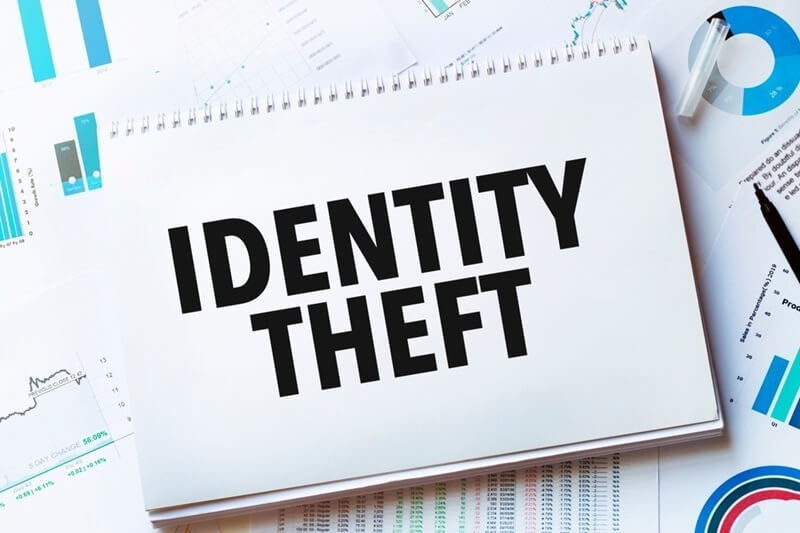Legal News

Learn What is Identity Theft and How It Can Affect You
One of the most widespread and terrifying crimes in the modern digital world is identity theft. Lots of individuals are not aware of how their personal data can be stolen and abused so easily. It is imperative to know what it is, how it occurs and what you can do to safeguard yourself. This guide will help you understand what identity theft is, the various types of identity theft, and what you can do in identity theft prevent identity theft.
What is Identity Theft
Learning about identity theft may get you out of a tight spot of great financial and emotional strain. Identity theft occurs when a person steals your personal information, such as; Social Security number, credit card details and/or bank account information and uses it without your consent.
How Identity Theft Happens
Identity theft may occur in numerous forms. Some common methods include:
- Phishing Emails: The phishers make use of emails that purport to be issued by an authoritative figure to deceive you into providing them with any personal details.
- Breach of data: Hackers may steal a lot of data from companies, and you are in the middle of the information.
- Mail Theft: Taking your mail to get access to financial statements, bills or checks.
- Skimming Devices: Devices that are installed on ATMs or gas pumps, which steal your card information.
Signs Your Identity Has Been Stolen
Early detection of identity theft is capable of avoiding significant harm. Watch out for:
- Unknown withdrawals in your bank or credit card account.
- Letters or bills on accounts you are not the originator of.
- Debt collectors make phone calls when you do not owe any debt.
- Getting tax forms that you did not order.
Types of Identity Theft
There may be numerous ways of identity theft, and it is important to know the difference between them to prevent identity theft.
Financial Identity Theft
This is the most common type. With your personal information, thieves open new credit cards, access your bank accounts, or even take loans in your name. Identity theft through finances can ruin your credit ranking and subject you to long-term economic issues.
Medical Identity Theft
Medical identity theft occurs when someone uses your personal information to receive medical treatment or prescription drugs. This can lead to incorrect medical records and even affect your insurance coverage.
Criminal Identity Theft
In criminal identity theft, someone gives your personal information to law enforcement during an arrest or investigation. You may end up with criminal records for crimes you did not commit.
Child Identity Theft
Children are often overlooked as targets, but thieves can use a child’s Social Security number to open accounts and build credit, leaving parents to clean up the mess later.
Tax Identity Theft
This happens when someone uses your Social Security number to file a tax return and claim a refund. It can cause serious delays and problems with the IRS.
Also read: Hiring an Identity Theft Attorney: What You Need to Know
How Identity Theft Affects You
Identity theft can have a devastating impact on your life. Beyond financial losses, it can cause emotional stress, ruin your credit.
Financial Consequences
Victims often face unauthorised charges, drained bank accounts, and loans or credit cards they never applied for. Fixing these issues can take months.
Damage to Credit Score
Identity theft can ruin your credit score, making it hard to get loans, mortgages, or even rent an apartment. Repairing credit damage takes time and careful management.
Identity Theft Prevention Strategies

The best way to fight identity theft is through prevention. Being cautious and proactive can save you from serious problems later.
Use Strong Passwords
Use complex passwords for your online accounts and change them regularly. Avoid using the same password across multiple accounts.
Monitor Financial Accounts
Regularly check your bank statements, credit card bills, and online accounts for suspicious activity. Early detection can prevent further damage.
Identity Theft Protection Services
While prevention is essential, identity theft protection services offer an extra layer of safety.
Credit Monitoring
Many services monitor your credit reports for unusual activity and alert you if a new account is opened in your name.
Identity Theft Insurance
Some identity protection services include insurance that can cover expenses related to restoring your identity if it is stolen.
Social Security Number Monitoring
Some services monitor the use of your Social Security number to alert you if it is being misused.
Steps to Take if You Are a Victim
Even with prevention, identity theft can still happen. Knowing what to do immediately can minimise damage.
Contact Your Banks and Credit Card Companies
Report any unauthorised transactions and close affected accounts. They may issue new cards and monitor your accounts for further suspicious activity.
Place Fraud Alerts
Report to the big credit agencies to make a fraud alert on credit reports. This is a warning to creditors against opening new accounts under your name without taking the necessary action to confirm identity.
File a Report
Report to the Federal Trade Commission (FTC) at IdentityTheft.gov. They can offer a recovery plan and documentation to assist in clearing your name.
Report to Local Authorities
In other instances, it is possible to file a report with the police, which may assist in identity theft cases, particularly criminal identity theft.
Educating Yourself About Identity Theft
The weapon of knowledge is against identity fraud. Learning how identity crimes are committed and what can be stolen can help you be better prepared and more aware to prevent them.
Learn About Common Scams
Be aware of the new scams, phishing attacks and hacks. The first thing to do when protecting yourself is to be aware.
Teach Family Members
Everyone can be a victim of identity theft within the household. Teach children and the adults in the family about proper online behaviour and the need to maintain the confidentiality of any personal data.
Explore more: How Identity Theft Laws Protect You In The United States
Prevent Identity Theft Every Day
Identity theft is a continuous process that should be prevented. Even little things that one does every day can be enormous.
- Keep Yourself Organised: Track your bills and credit cards, as well as very important documents. Being aware of the location of the information will minimise the risk of theft.
- Do not share too much on the internet: Be informed about giving personal information on social media. Birthdays, addresses and other personal information can be used by thieves to steal your identity.
- Check your Statements Periodically: Look into your credit card, bank statements, and other accounts to determine whether there is unusual activity in the account. Report immediately in case of any suspicion.
Conclusion
The problem of identity theft is a major and increasing danger in the contemporary world. Knowing what identity theft is and knowing how to prevent identity theft can save you, your money and your head. With care, keeping watch of your accounts and looking at insurance against identity theft, you can mitigate your risk and have a fast response in case your information is stolen. It is important to remember that you can do little, but take action daily, and it can go a long way in ensuring that your identity is not compromised.
Current Topics
1. How to Choose the Best Personal Injury Lawyer in the USA?
A personal injury lawyer...
2. How to Find the Right Attorney and Choose the Best Lawyer
Finding the right attorn...
3. Healthcare Compliance Rules Every Legal Pro Must Know
Here's the thing. Health...
4. AI ChatGPT Tools in Artificial Intelligence for Lawyers
The world of law is evolving at a pac...
5. What Are the Employment Laws Protecting Worker Rights?
In contemporary jobs, it...
6. Financial Resilience Explained for Stability & Success
Money is so cumulative i...
7. What Are Gig Economy Jobs? Legal Rights You Must Know
The way people work has changed drama...
8. Rights & Mediator's Role in Pregnancy Child Support 2025
The first idea that will come to the ...
9. Digital Courtrooms: VR Evidence & Remote Trials in 2025
Once upon a time, courtrooms were all...
10. How to Find a Good Lawyer Made Simple for Beginners
The first question that ...
